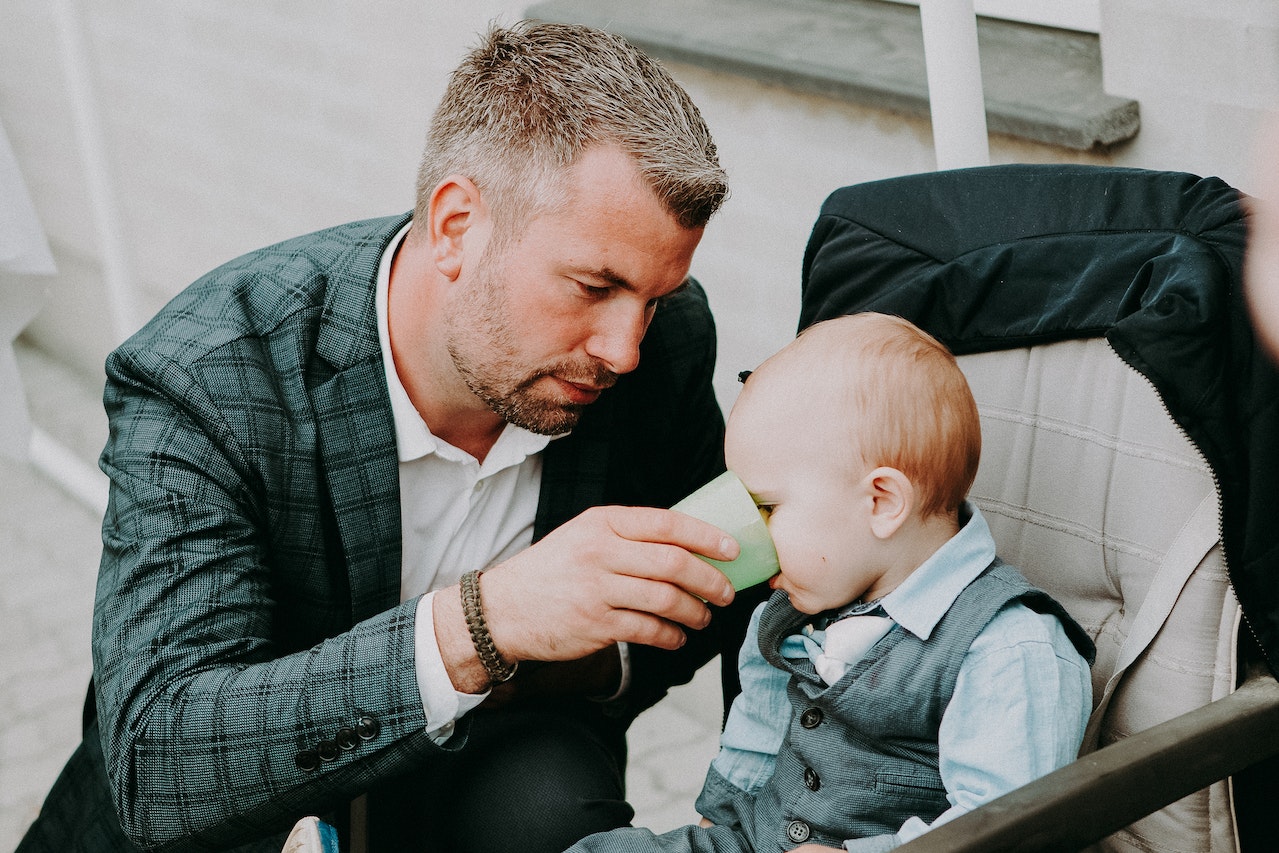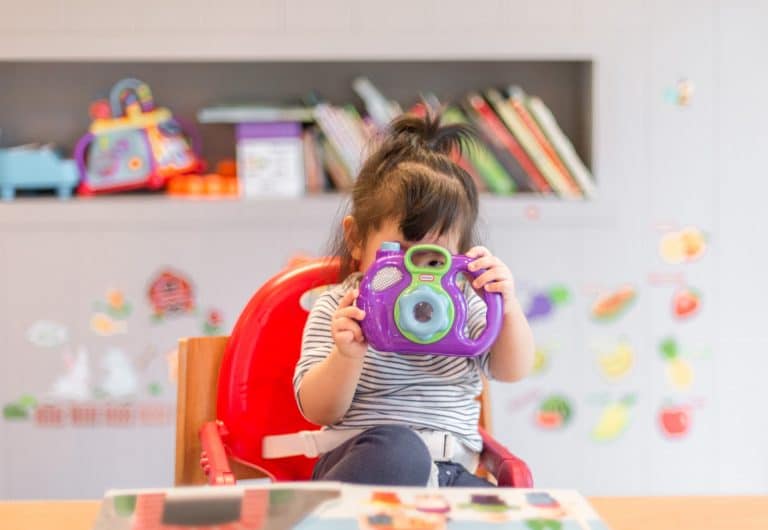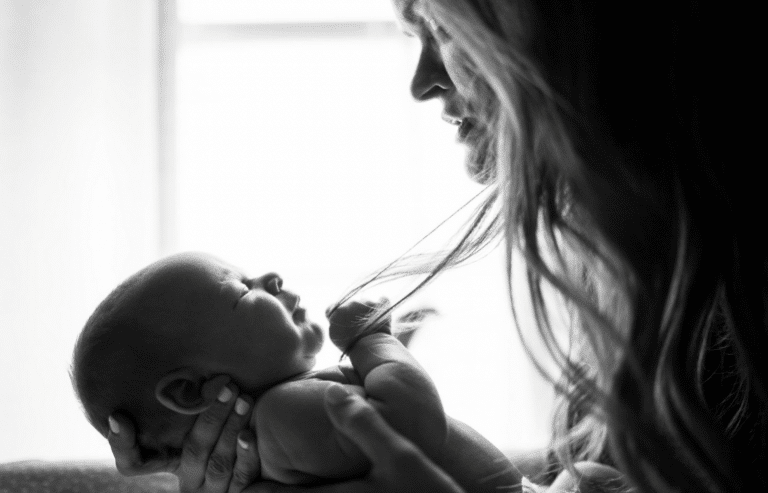Wondering when your baby can drink water? Drinking water is essential for our survival and well-being. Although you should continue to breastfeed or formula feed your baby for the first year of their life. But what about the water? In this post, we will explore when babies can drink water and how much water they need. We will also provide some tips for introducing water to your baby. Keep reading to learn more!
Water is an important part of a healthy diet for people of all ages. It helps the body stay hydrated and function properly. But when it comes to newborns and toddlers, they get all the hydration they need from their formula or breast milk. Water intake for babies can come from other sources as well, like cooked vegetables or fruits. According to the world health organization, infants under 6 months old should only drink water that has been boiled and cooled down.
A baby’s system is still developing, water can cause them to have water intoxication which could lead to seizures. So it is best to wait until they are at least 6 months old before giving them water to drink. Giving your baby water before they are 6 months old can also interfere with their iron absorption. In this blog post, we will give you more information on when can babies drink water and the tips you need to know before giving them water to drink.
In This Article
When should babies drink water?
When your baby is 6 months old, you can start giving them some water along with their food. During the first six months of life, babies should only consume breast milk or formula. However, it is important to talk to your doctor before giving your baby any water to drink.
Some health professionals recommend waiting until your baby is at least eight months old before giving them water. You can offer it in an open cup with a straw or in a sippy cup, which can prevent you from ingesting too much at once. This is a good opportunity to practice drinking from something other than a bottle or a breast, which is a skill they should master as they get older.
Generally, you can give your baby about 4 to 8 ounces of water a day from 6 to 12 months, but keep in mind that this should not replace formula or breast milk at this time. Instead of tracking ounces, offer some with meals and snacks (if snacks are offered) and at natural points during the day when they might be thirsty (like when he or she drinks water).
As your child grows, you can add more water to their routine. According to the American Academy of Pediatrics, babies 12 to 24 months need 1 to 4 cups of water a day, and the recommendation is 2 to 5 years, for children it goes from 1 to 5 cups. Also, a local health department or doctor can tell you how much water your baby needs. {1}
When can babies drink breast milk or formula?
As well as you can start giving your baby breast milk as soon as they are born. If you are formula feeding, you can start with pre-made formulas or formulas that you make yourself. To help your breastfeeding baby, hold them close to you with their head in the crook of your arm. Support their back and bottom with your hand.
Breast milk is the first-serving milk for each feeding time, and is a better alternative to drinking water. Breast milk not only satisfies your baby’s thirst but also improves your baby’s immune system. Drinking breast milk also protects your baby from infections and helps in her growth and development.
In general, parents should wait at least six months to introduce their children to drinking water. Give your child a few sips of water when they are thirsty. Until then, your baby can stay hydrated with breast milk and formula. As mentioned above, a baby’s digestive system is very sensitive and impure water can cause bloating in their weak stomach. When a new mother stops feeding her newborn prematurely, she will eventually suffer from malnutrition.
However, by giving water instead of breast milk, less breast milk will also be produced. Bottle-fed babies can feel thirsty when the temperature rises. In such cases, make sure the drinking water is clean and preferably lukewarm. Be sure not to use more water than directed, as it can lead to water intoxication.
When did you start giving solid foods?
It’s typically recommended to start baby solid foods around 6 months old. However, it’s always best to check with your pediatrician to see what they recommend based on your baby’s individual circumstances. Some babies may be ready for solid foods sooner than six months, while others may not be ready until later.
There are a lot of different opinions on when to start baby solid foods, but the general consensus seems to be that starting somewhere between six and eight months is a good idea. Many babies are developmentally ready for solids by six months old, and this is also when they begin to lose their milk-only diet appetite. At the same time, you don’t want to start solids too early because this can lead to problems with digestion and weight gain.
The best way to know if your baby is ready for solid foods is to watch for signs of readiness. These can include things like sitting up unassisted, showing interest in food, and being able to hold their head up and swallow without choking. If you’re not sure whether or not your baby is ready for solid foods, it’s always best to check with your pediatrician.
Tips you should consider
Here are some parenting tips to introduce water to your baby and they are:
- During infant formula or breastfeeding, give your baby water in a bottle or cup.
- Young children ages 1 to 3 years old should drink 1-2 cups (237 to 473 milliliters) of water per day.
- To avoid accidental choking, never give water to a baby under 6 months old.
- Water is the best choice for quenching thirst at any age. It has no calories, sugar, or other harmful substances.
- If your baby is constipated, talk to the doctor before giving water. A small amount of water may be recommended as part of a treatment plan.
- Don’t put your baby to bed with a bottle of water. This can cause tooth decay.
- Avoid sugary drinks, such as soda and fruit juice. These drinks can cause weight gain and cavities.
- Don’t give your baby tea or coffee. These drinks contain caffeine and can be harmful to a developing baby.
- Talk to your doctor if you have concerns about your baby’s water hydration. They can help you create a plan to ensure that your baby is getting enough fluids.
- More breast milk or infant formula may be needed if your baby is vomiting or has diarrhea. These conditions can cause dehydration, so it’s important to replace lost fluids.
- Follow professional medical advice about tap water, especially if you are using well water. Some areas have water that is not safe to drink without boiling first.
- If you are using bottled water, check the label to make sure it’s appropriate for infants. Some waters have a high mineral content that can be harmful to babies.
- In hot weather, you may need to give your baby extra water to prevent dehydration. Signs of dehydration in babies include a dry mouth, fewer wet diapers, crying with no tears, sunken eyes, and a soft spot on the head that feels sunken.
- Lastly, make sure about wet diapers. At least 4 to 6 wet diapers a day is a good sign your baby is getting enough water.
How much water can a 6-month-old have?
A 6-month-old can have up to 8 ounces of water per day. However, this is only a general guideline and your baby may need more or less water depending on various factors such as their diet, ambient temperature, and level of activity. If you’re worried about whether your baby is getting enough water, talk to your pediatrician. They can help you figure out how much water your baby needs based on their individual needs.
Why can’t babies drink water?
Babies can’t drink water because they are born without the reflex to swallow. Additionally, their kidneys are not developed enough to filter out bacteria and other impurities, so even if they could drink water, it would be very dangerous for them. Even a small amount of water can lead to severe dehydration in babies, which can be life-threatening. So sips of water or any other kind of fluid should only be given to babies under the supervision of a doctor.
What can babies drink at 6 months?
At six months, your baby can begin to drink small amounts of water. You can give them water at mealtimes and in between meals. However, avoid giving them too much water, as it can disrupt their digestive system. Babies under six months old should drink diluted fruit juice, milk or formula.
Some babies may also be ready for thinned-down baby food. You can start with vegetables, such as green beans, squash or sweet potatoes. When your baby is eating well from a jar, you can start to add cereal to the food. Be sure to check with your doctor before starting any of these things.
How do I introduce water to my baby?
Water is an essential part of every baby’s diet, and introducing it early on is important for proper hydration and development. It’s recommended that babies start drinking water at around 6 months old, which is when they’re able to sit up unassisted and can hold their heads up well.
There are a few different ways you can introduce water to your baby. You can offer it to them in a bottle or sippy cup, or you can give them small amounts of water to drink from a cup during mealtimes. You can also mix water with formula or breastmilk if you’re looking to increase your baby’s intake gradually.
Whichever way you choose to introduce water, make sure you do so slowly and in small amounts at first. This will help your baby get used to the taste and feel of water without feeling overwhelmed. And of course, always supervise your baby while they’re drinking water, as there is a risk of choking.
The bottom line
Therefore, water is an essential part of a baby’s diet and should be introduced gradually, starting at around 6 months old. As with any change in your child’s diet or routine, it’s important to make the transition slowly. Also, it’s important to consult your child’s pediatrician before making any changes that may affect your child’s overall nutrition. Although water can help keep them nourished after 6 months of age, breast milk and healthy, mashed solid foods are key to helping your baby stay healthy and happy. To give all the nutrients they need, keep breast milk or formula as the main drink until they’re at least a year old. After that, you can offer small amounts of water with meals. We hope this article was helpful to you, if you have any queries and suggestions for us leave a comment below.
Reference:-
{1} Recommended Water To Baby – HealthyChildren.Org (2022)










![Home Renovation Guide [2025]](/app/uploads/2021/04/design-hacks-1-378x300.jpg)
